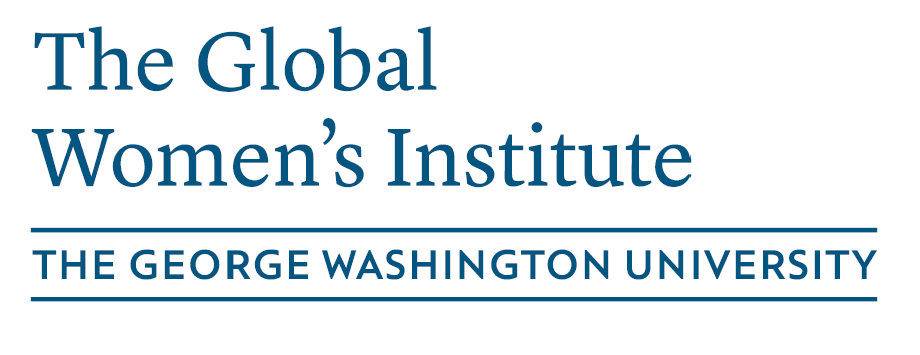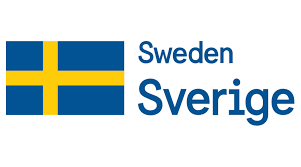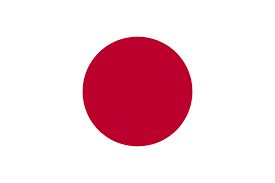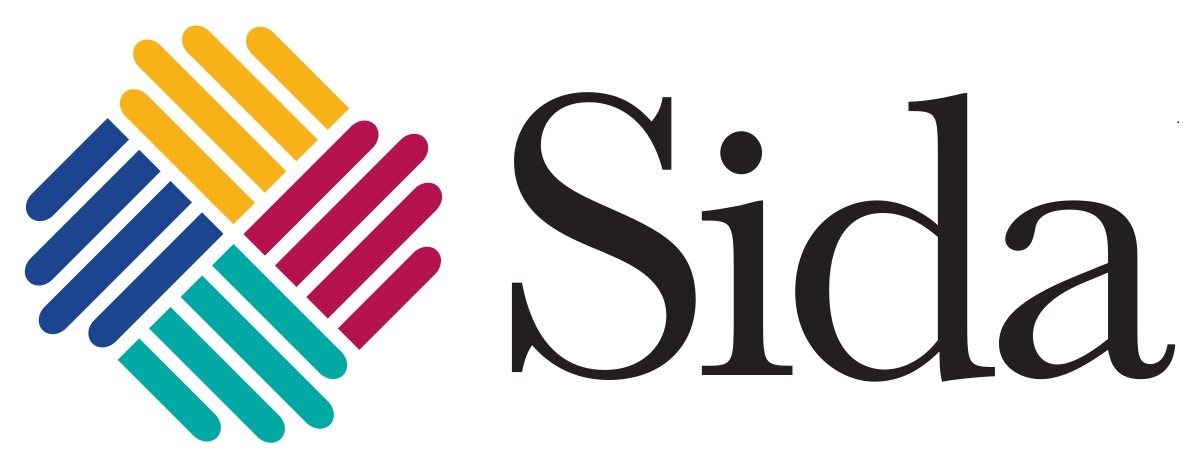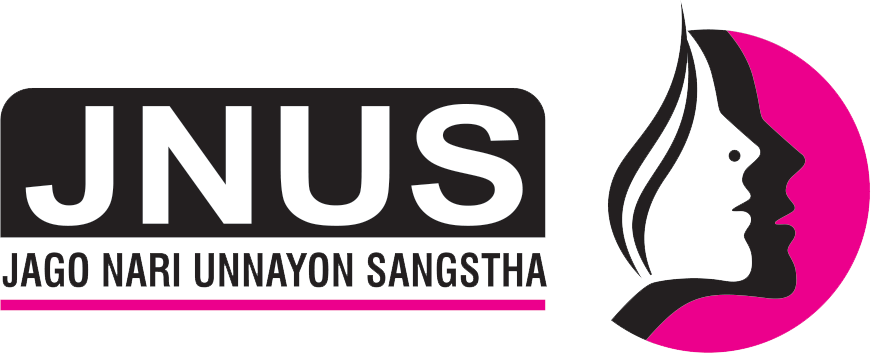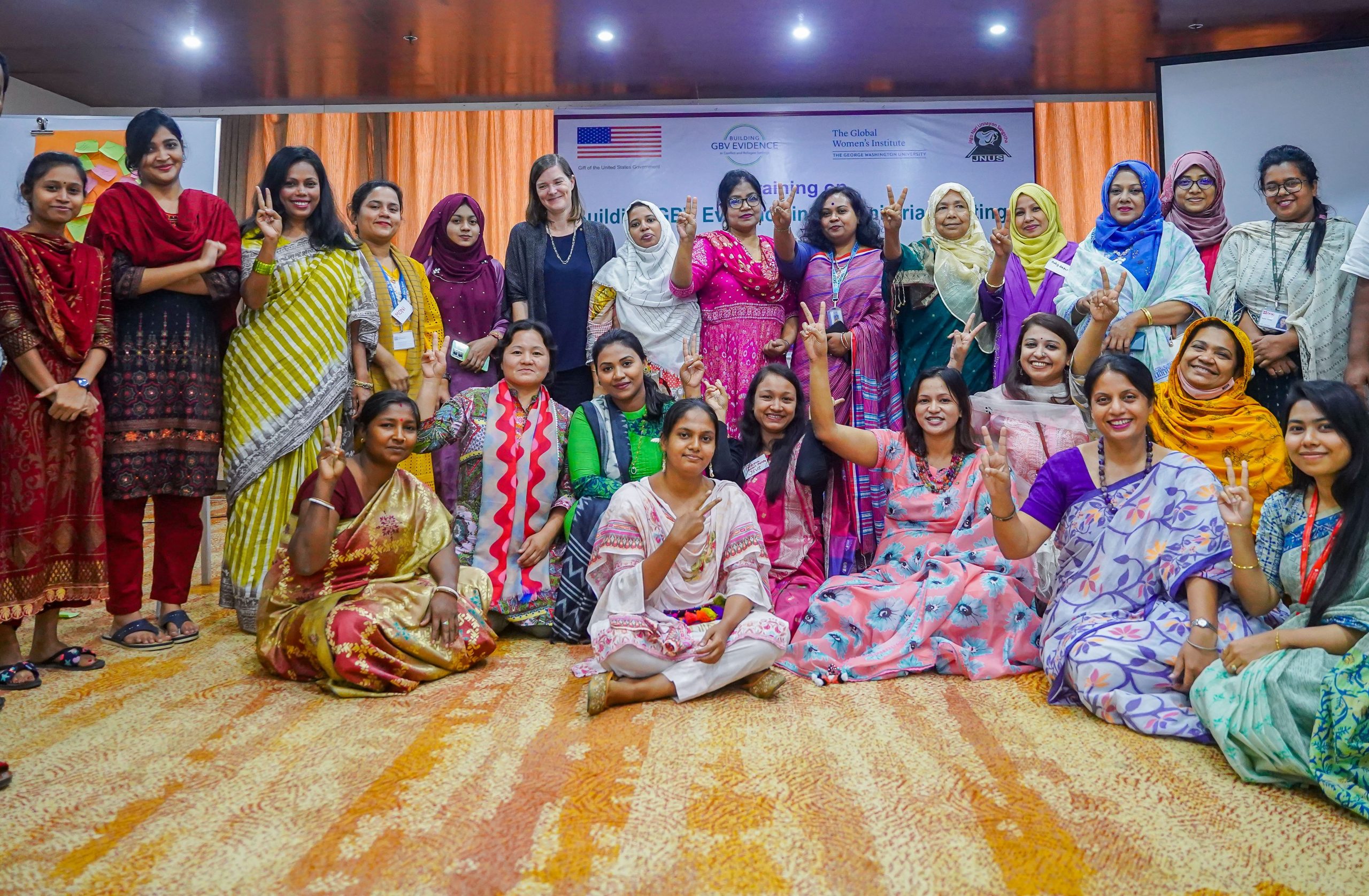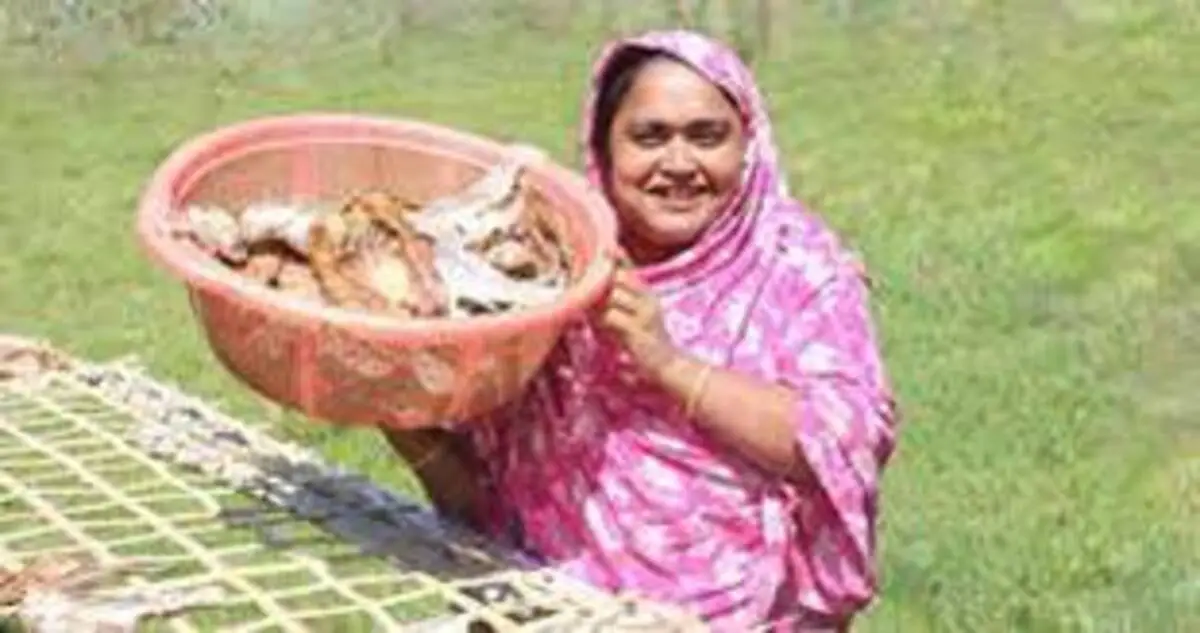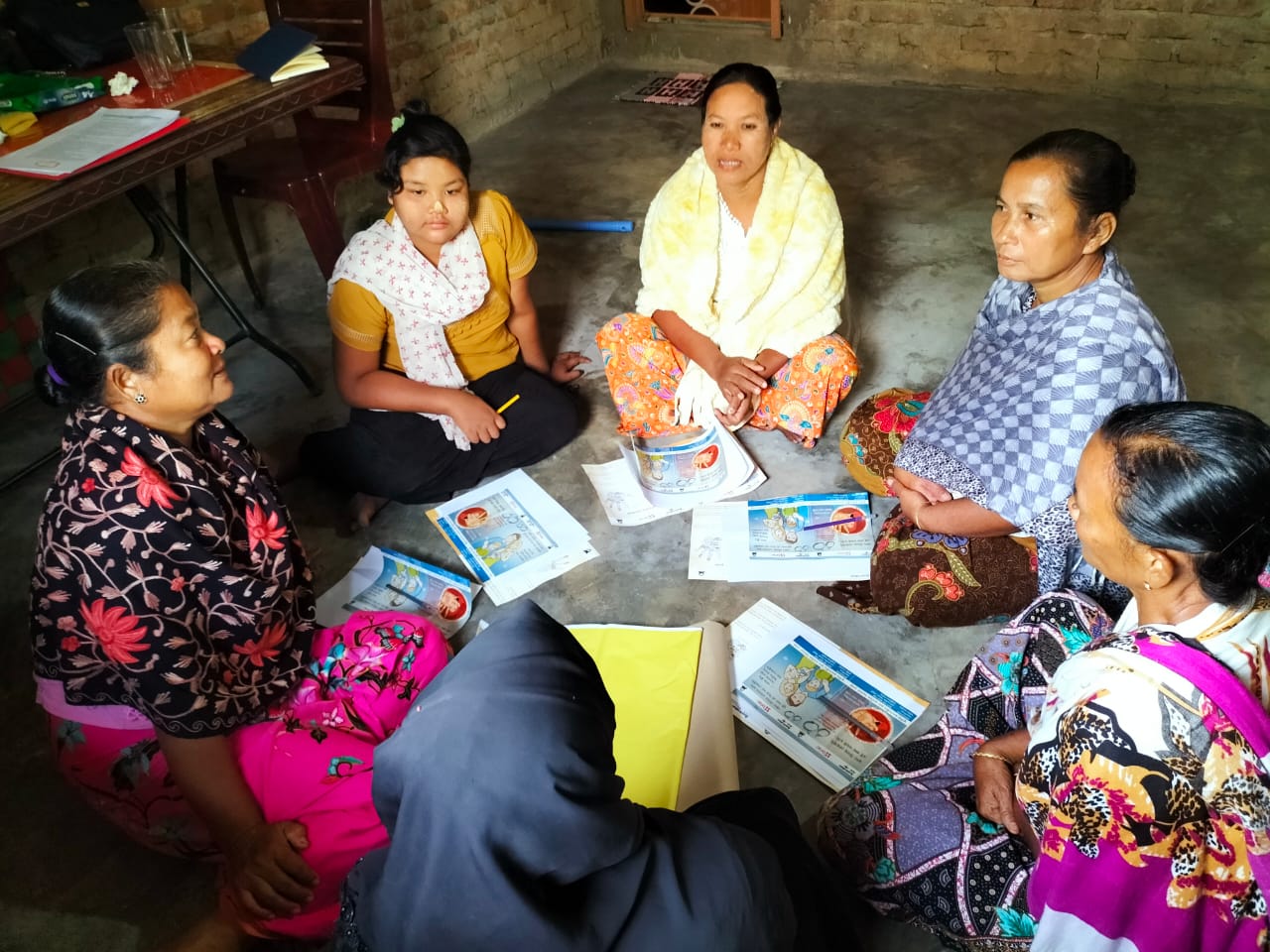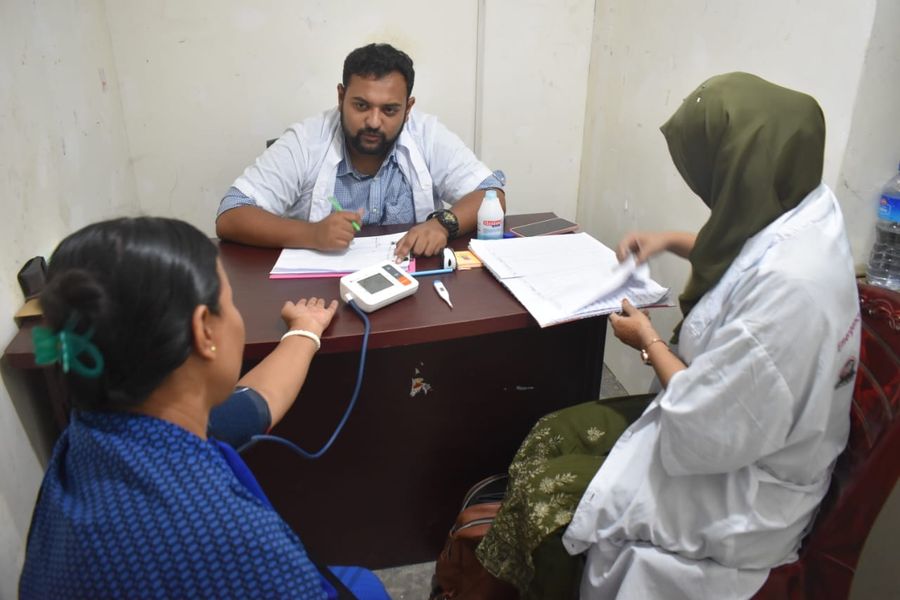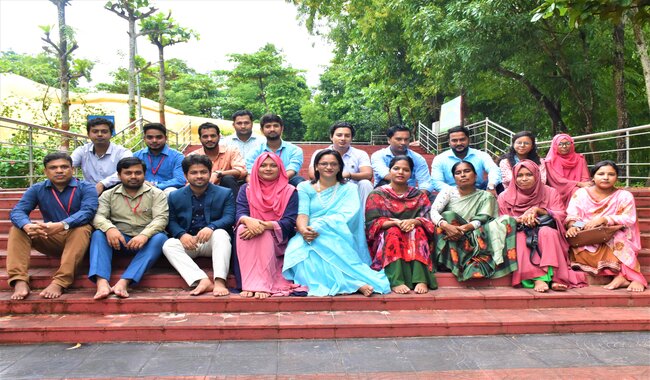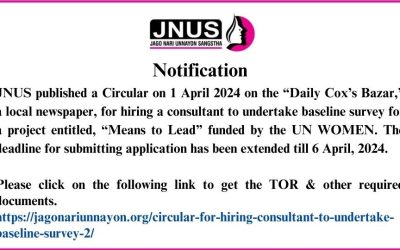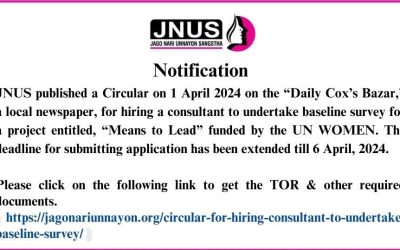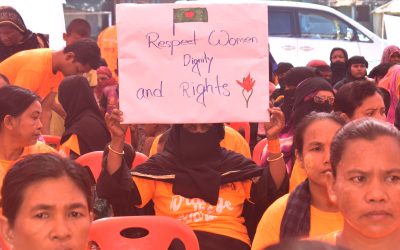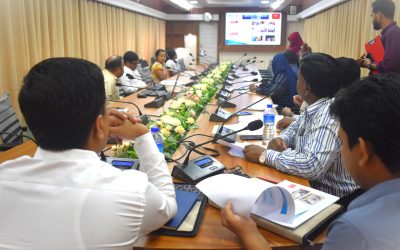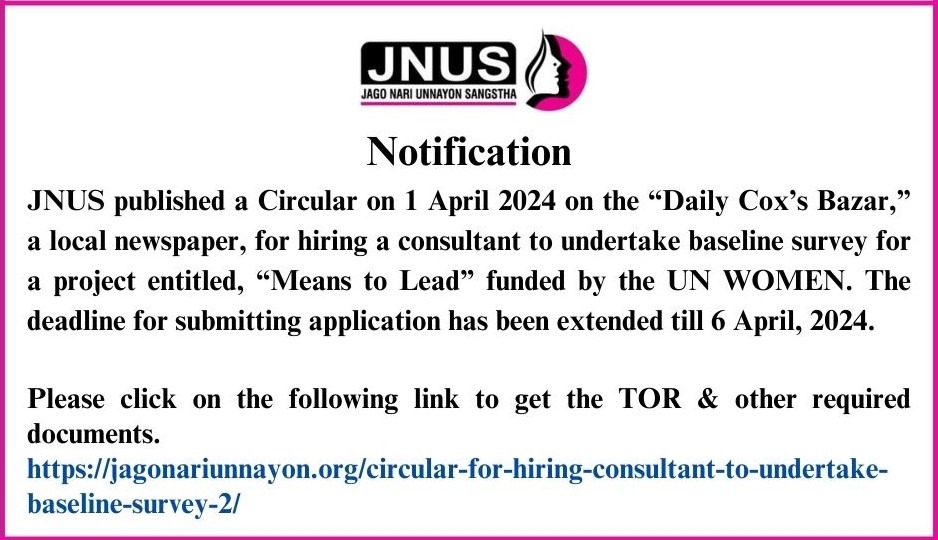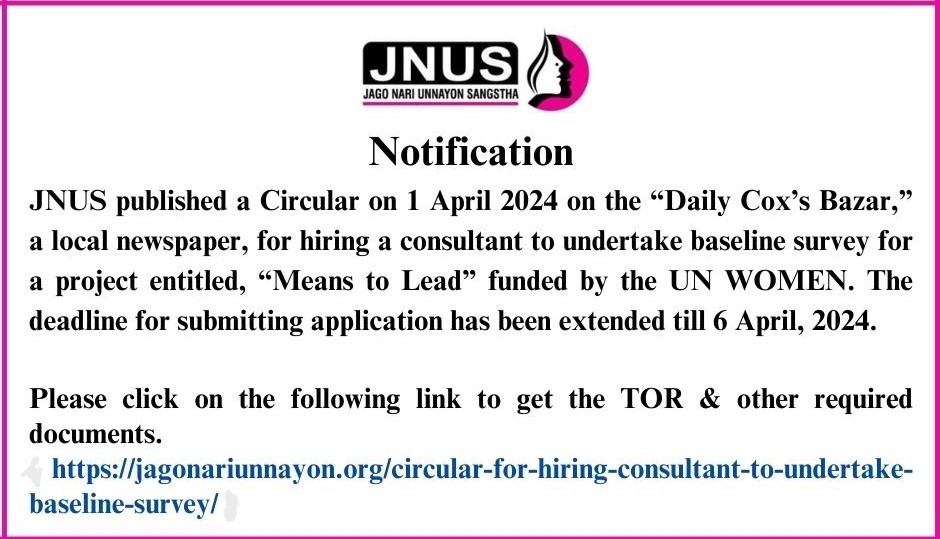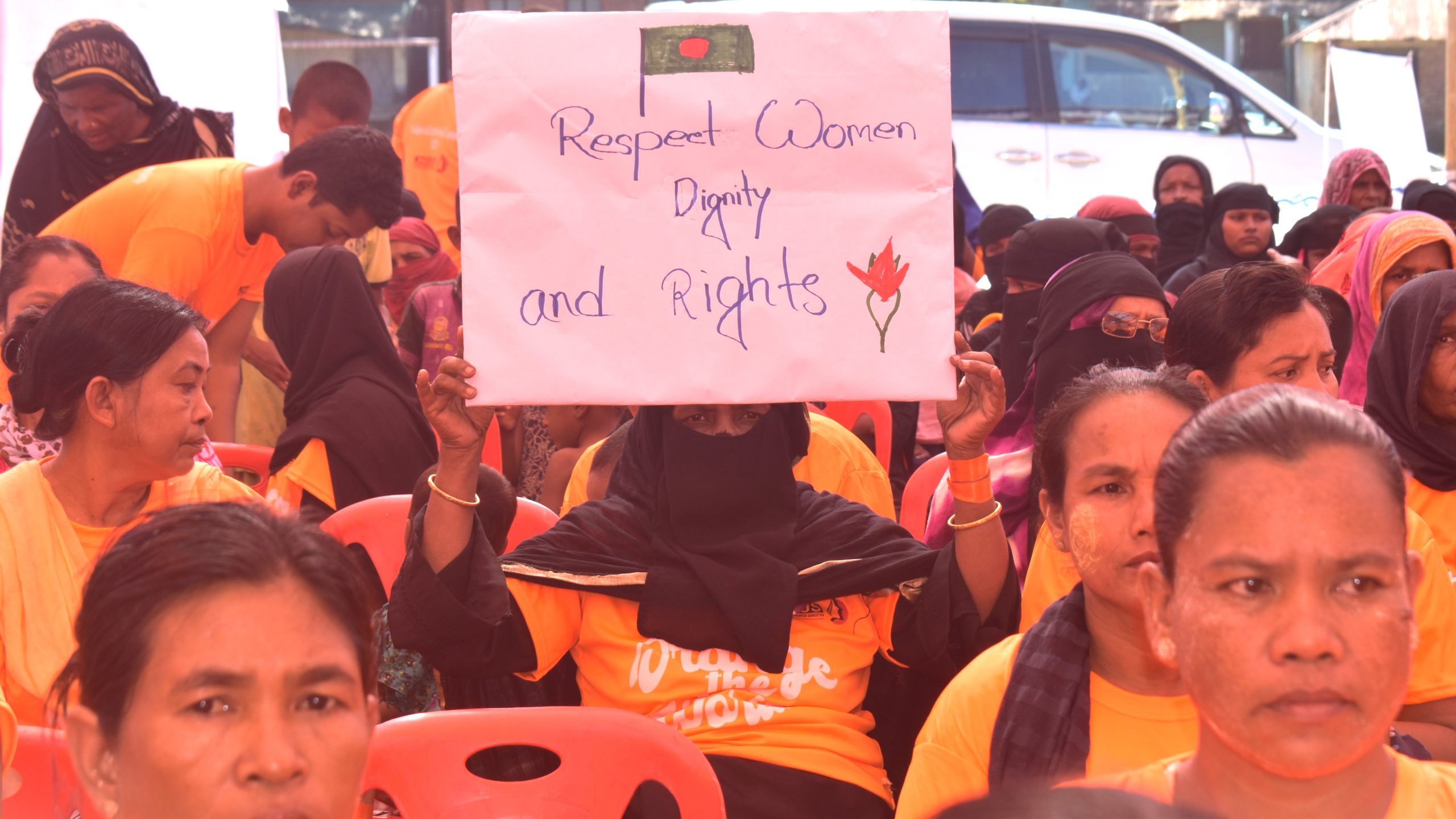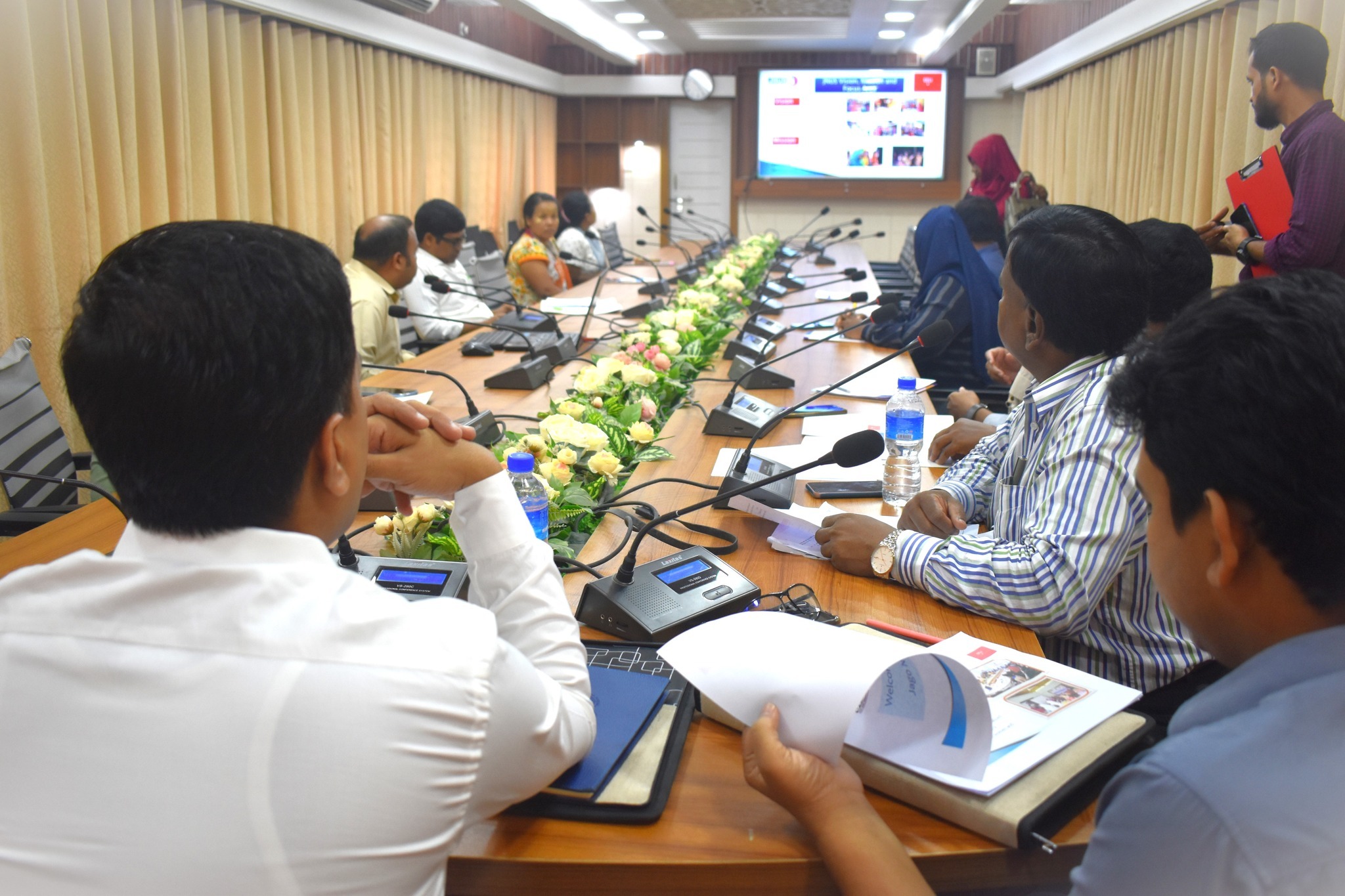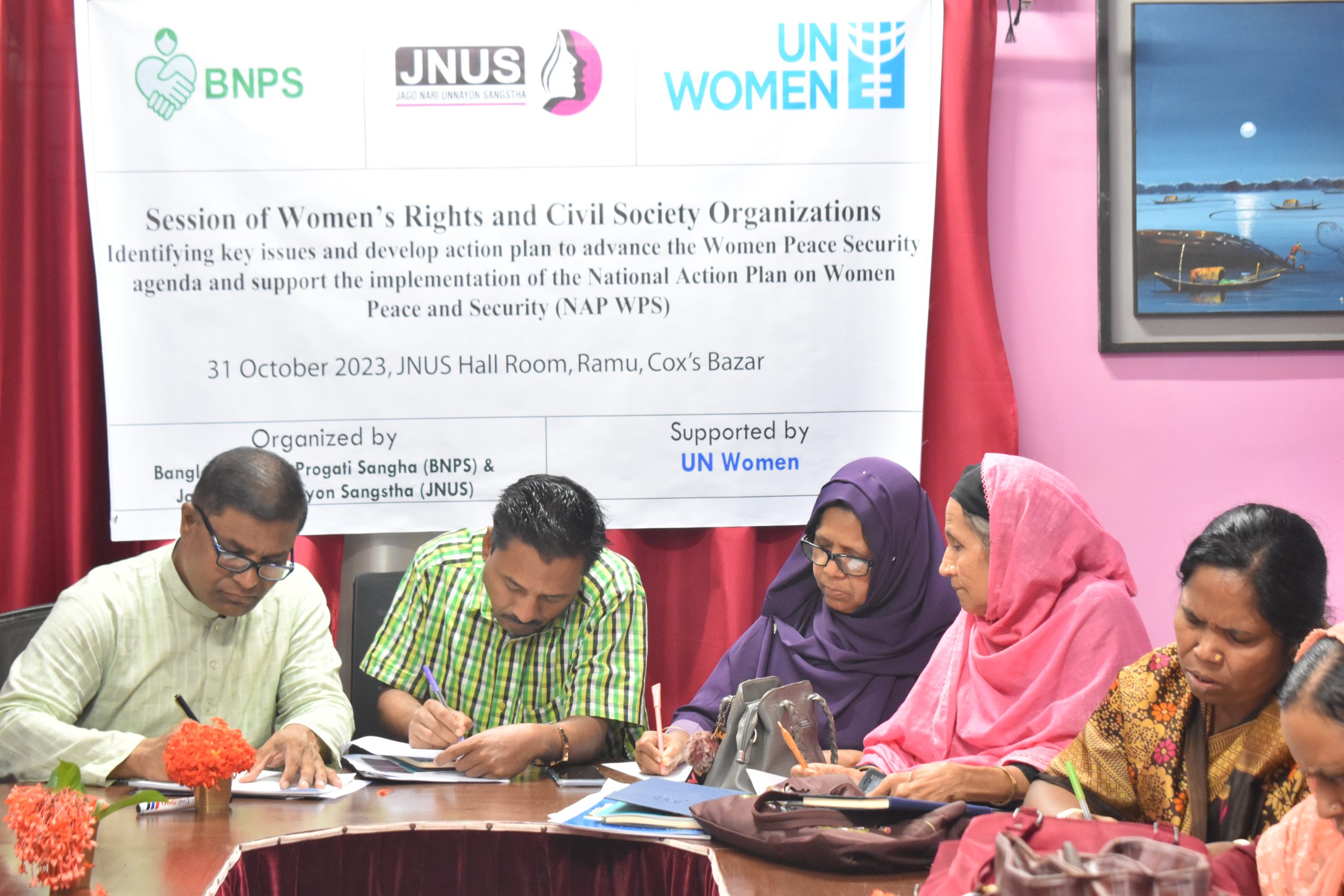About Us
JNUS has been creating positive impact on the lives of women, girls and other vulnerable communities breaking the cycle of poverty, fighting various forms of GBV and building a better future for themselves, their families, and their communities. We remain steadfast in our mission, persistently fostering innovative and localized solutions. Looking back, we are grateful to the women who have stood by us over the years. We pledge our unwavering commitment to this relent- less pursuit – for a world where every woman lives a life of dignity and respect.
JNUS has recently updated its logo and website.
Vision
‘To bring an end of all forms of violence and discrimination against women and girls irrespective of gender, race, religion and culture.”
Mission
“To promote a just, inclusive and democratic society where the women and girls will take the leadership for sustainable development.”
What we do
- $Preventing GBV through Empowerment
- $Climate Justice and DRR
- $Social Cohesion and Peace-Building
- $Water, Sanitation and Hygiene
- $Health
-
Skills Development & livelihood
- $Research and Advocacy
Focus Areas
Circular for Hiring Consultant to Undertake Baseline Survey
For additional details, kindly click the following update link:...
Circular for Hiring Consultant to Undertake Baseline Survey
For additional details, kindly click the following update link:...
A Pledge for a Safer, Stronger Community
Under the 16-day (25 November to 10 December) program to prevent violence against women, Jago Nari Unnayon Sangstha...
Project Inception Meeting
The JAGO NARI Unnayon Sangsta (JNUS) has organized an inception meeting to inaugurate a project entitled, “Empowerment...
Programmes
- Feminist Opportunities Now (FON)
- Promotion of Gender Responsive WASH Services in Humanitarian Response in Cox’s Bazar
- Means to Lead: Empowering Rohingya Refugees and Host Community Women Through Learning, Leadership and Self-Reliance
- Building resilience of coastal inhabitants in vulnerable regions of Bangladesh through a participatory gender transformative approach
- Turning Tides Project
- Photo voice Research Project
- Social Cohesion Between Host and Rohingya Communities
- Enhancing Protection to Female Volunteers and Staff in the Humanitarian Response in Cox’s Bazar
- Empowerment of Women in Fishing Community in Cox’s Bazar, Bangladesh for Increasing their Rights in Livelihood
- Capacitating Local NGOs in Cox’s Bazar
- Provision of critical multi-sectoral support services in Rohingya and affected Host Community
- MAITREE: Promoting women’s participation in peace building and social cohesion
- SHEBA Project
- Strengthening Intercommunity Engagement against Violent Extremism
- Local Women Lead for Sustainable Peace
- COVID-19 Response in Rohingya Camps and Adjacent Host Communities in Bangladesh Project
- 2021-069 UN OCHA Inter-Agency Humanitarian Evaluation on COVID-19 Response
- Capacity Development for “Advancing Local Level Action in EiE” project.
- Empowering CSOs, Youth, and Women for Transparent and Accountable Bangladesh (ECTAB)
- PRISE (SDC BRAC Social Cohesion Fund for Cox’s Bazar District (T-2)
- Improving Access to Emergency Health and Primary Health Care Services of the Displaced Rohingya Communities who are Suffering due to Devastating Fire in Kutupalong Camp, Ukhiya, Cox’s Bazar
News & Events
Our Partners & Donors















